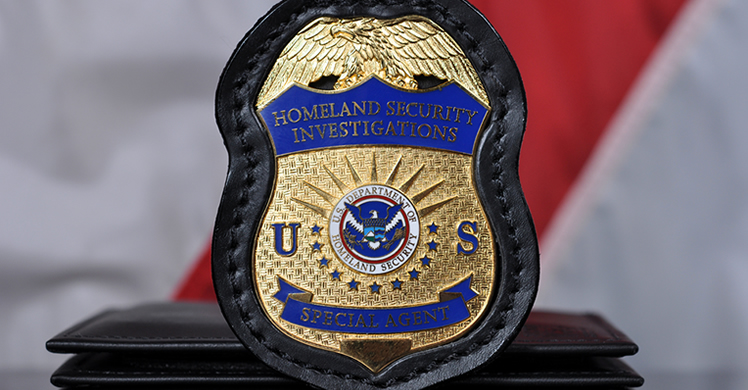Liberian warlord 'Jungle Jabbah' receives historic sentence in immigration fraud case
PHILADELPHIA – A Liberian national was sentenced in federal court Thursday to 30 years in prison for immigration fraud and perjury. The prison term marks the longest sentence for a human rights violator case in the history of U.S. Immigration and Customs Enforcement’s (ICE) Human Rights Violators and War Crimes Center (HRVWCC), which supported the probe. The sentencing also caps an extensive investigation led by ICE Homeland Security Investigations (HSI) Philadelphia.
Mohammed Jabbateh, 51, a violent and ruthless Liberian war lord also known as “Jungle Jabbah,” who had been living in East Lansdowne, Pennsylvania. Jabbateh, 51, was found guilty in October 2017 of two counts of fraud in immigration documents and two counts of perjury.
During the height of Liberia’s first civil war from 1992 to 1995, Jabbateh, while serving as commander of a warring faction known as the United Liberation Movement of Liberia for Democracy (ULIMO), committed various acts of shocking brutality including rapes, sexual enslavement, slave labor, murder, mutilation and ritual cannibalism. He also used children as soldiers.
According to trial testimony, in one instance Jabbateh ordered the heart of a captive be cooked and fed to his fighters. In another, fighters under the defendant’s command murdered a villager, removed his heart and ordered the town chief’s wife to cook it. Jabbateh later had the town chief himself murdered and ordered his widow to cook her husband’s heart.
"In December 1998, when applying for immigration benefits, the defendant was not truthful about his activities during Liberia’s first civil war while he was a member of the ULIMO and later ULIMO-K rebel groups that battled for control of Liberia.
At Jabbateh’s trial, during two weeks of testimony from some two dozen witnesses, including 17 Liberian victims, the jury heard evidence that Jabbateh, as a ULIMO commander, either personally committed or ordered ULIMO fighters under his command to commit the following offenses: the murder of civilian noncombatants; the sexual enslavement of women; the maiming of civilian noncombatants; the torturing of civilian noncombatants; the enslavement of civilian noncombatants; the conscription of child soldiers; the execution of prisoners of war; the desecration of corpses and ritual consumption of human flesh; and the killing of persons because of race, religion, nationality, ethnic origin or political opinion.
HSI Philadelphia was supported by ICE’s Philadelphia Office of the Chief Counsel and ICE’s Human Rights Violators and War Crimes Center (HRVWCC). Established in 2009 to further ICE’s efforts to identify, track, and prosecute human rights abusers, the HRVWCC leverages the expertise of a select group of agents, lawyers, intelligence and research specialists, historians, and analysts who direct the agency’s broader enforcement efforts against these offenders.
Since 2003, ICE has arrested more than 395 individuals for human rights-related violations of the law under various criminal and/or immigration statutes. During that same period, ICE obtained deportation orders against and physically removed 835 known or suspected human rights violators from the United States. Additionally, ICE has facilitated the departure of an additional 112 such individuals from the United States.
Currently, HSI has more than 130 active investigations into suspected human rights violators and is pursuing more than 1,750 leads and removals cases involving suspected human rights violators from 95 different countries. Since 2003, the HRVWCC has issued more than 74,000 lookouts for individuals from more than 110 countries and stopped over 234 human rights violators and war crimes suspects from entering the U.S.


